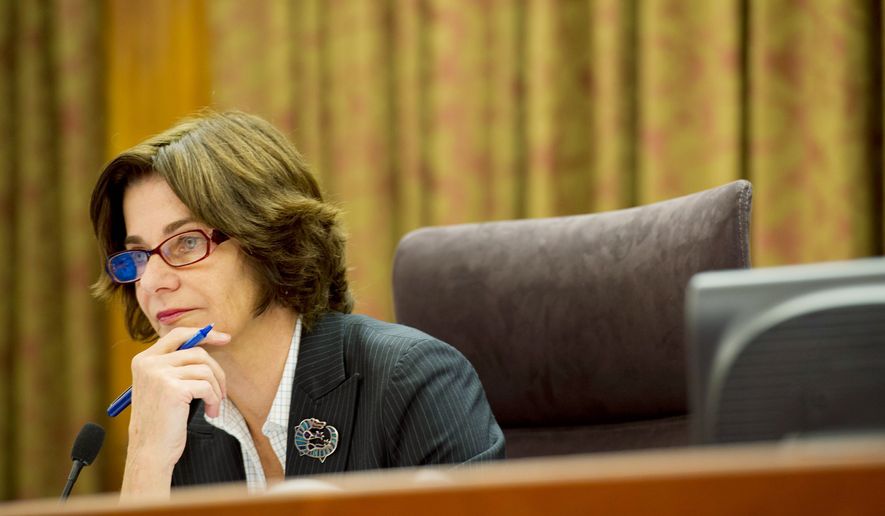D.C. Council member Mary Cheh is calling on Mayor Muriel Bowser to prove that her plan to increase speeding fines to $1,000 will deter speeders and not just provide more revenue for the District.
By way of the District Department of Transportation (DDOT), Ms. Bowser has introduced a proposal to raise traffic fines as part of her “Vision Zero” plan to eliminate transportation-related fatalities in the District by 2024. The initiative includes a proposed fine of $1,000 for motorists traveling 25 mph over the posted speed limit. The current fine for the speeding offense is $300.
Last year, Metropolitan Police issued 438 citations for “egregious speeding” — that is, drivers going 30 mph or more over the speed limit. If the proposed policy’s $700-per-fine increase had been in effect, the District would have been set to collect an additional $306,600 in traffic-enforcement revenue. (That figure does not include citations for driving 25 mph to 29 mph over the speed limit because police do not break out those statistics.)
Ms. Cheh, Ward 3 Democrat and chair of the Transportation Committee, has some reservations about the proposal and has planned a public hearing for Jan. 8 to address concerns about whether increasing speeding fines will deter drivers from racing through the city.
Technically, the mayor does not require council approval to increase traffic fines. The auto club AAA Mid-Atlantic has said the proposed fines would be among the highest in the nation and has questioned if they are intended merely to generate revenue.
However, during an appearance Tuesday on NewsChannel 8’s “NewsTalk,” Ms. Bowser said city police are unlikely to start issuing $1,000 speeding tickets.
SEE ALSO: D.C. police record District’s 162nd homicide of 2015 with two slayings in Southeast
“I don’t think you’re going to see those,” she said.
Still, the mayor said that her administration remains committed to ending pedestrian deaths and that city officials will “look at what fines are appropriate.”
As of Monday, Metropolitan Police reported on its website 26 traffic fatalities but not the number of pedestrian deaths this year. Police recorded 10 pedestrian deaths among the 26 traffic fatalities the city saw in 2014.
Ms. Cheh said the process for increasing fines should be more transparent, so she is calling on DDOT to speak to residents and quell fears that the proposal is just another way for the city to make money.
If DDOT can provide justification that the increased fines will make streets safer and keep drivers from speeding, Ms. Cheh said, then she has no problem with the proposal moving forward.
“We need a public hearing on this,” she said. “If DDOT can make a case then that’s good, but they need to make it publicly.”
SEE ALSO: Washington D.C.’s Ward 8 to get ‘boost’ from Homeland Security move
A 2007 National Institutes of Health study showed that higher fines do not deter motorists from speeding. Researchers identified nearly 4 million licensed drivers in Maryland and followed them for one year. The study found those drivers who received speeding tickets were just as likely to speed again.
“Drivers who receive speeding citations are at increased risk of receiving subsequent speeding citations, suggesting that speeding citations have limited effects on deterrence in the context of the current traffic enforcement system,” the study said.
Both DDOT and Ms. Bowser didn’t respond to calls seeking comment.
The justification of the proposal isn’t Ms. Cheh’s only concern. She also questioned whether the Democratic mayor has the authority to unilaterally increase traffic fines and, if she does, whether that authority is too broad.
“The mayor has such a general authority over traffic that it could be justified,” the lawmaker said. “But that’s a problem if the authority is so broad as to not include the council.”
• This article is based in part on wire service reports.
• Ryan M. McDermott can be reached at rmcdermott@washingtontimes.com.




Please read our comment policy before commenting.